- Home
- William Shakespeare
The Two Gentlemen of Verona Page 8
The Two Gentlemen of Verona Read online
Page 8
To keep me from a most unholy match,
Which heaven and fortune still33 rewards with plagues.
I do desire thee, even from a heart
As full of sorrows as the sea of sands,
To bear me company and go with me:
If not, to hide what I have said to thee,
That I may venture to depart alone.
EGLAMOUR Madam, I pity much your grievances,39
Which, since I know they virtuously are placed,
I give consent to go along with you,
Recking as little what betideth42 me
As much I wish all good befortune43 you.
When will you go?
SILVIA This evening coming.
EGLAMOUR Where shall I meet you?
SILVIA At Friar Patrick's cell,47
Where I intend holy confession.
EGLAMOUR I will not fail your ladyship.
Good morrow, gentle lady.
SILVIA Good morrow, kind Sir Eglamour.
Exeunt [separately]
Act 4 Scene 4
running scene 16
Enter Lance [with his dog, Crab]
LANCE When a man's servant shall play the cur1 with him,
look you, it goes hard: one that I brought up of2 a puppy: one
that I saved from drowning, when three or four of his blind
brothers and sisters went to it. I have taught him, even as
one would say precisely, 'thus I would teach a dog'. I was sent
to deliver him as a present to Mistress Silvia from my master,
and I came no sooner into the dining-chamber but he steps7
me to her trencher and steals her capon's8 leg: O, 'tis a foul
thing when a cur cannot keep9 himself in all companies. I
would have, as one should say, one that takes upon him10 to be
a dog indeed, to be, as it were, a dog at11 all things. If I had not
had more wit than he, to take a fault upon me that he did12, I
think verily he had13 been hanged for't: sure as I live, he had
suffered for't, you shall judge. He thrusts me14 himself into the
company of three or four gentlemanlike dogs under the
duke's table: he had not been there -- bless the mark16 -- a
pissing while17, but all the chamber smelt him. 'Out with the
dog!' says one. 'What cur is that?' says another. 'Whip him
out', says the third. 'Hang him up', says the duke. I, having
been acquainted with the smell before, knew it was Crab, and
goes me to the fellow that whips the dogs: 'Friend,' quoth I,
'you mean to whip the dog?' 'Ay, marry, do I', quoth he. 'You
do him the more wrong,' quoth I, ''twas I did the thing you
wot of.' He makes me no more ado24, but whips me out of the
chamber. How many masters would do this for his servant?
Nay, I'll be sworn, I have sat in the stocks for puddings26
he hath stolen, otherwise he had been executed: I have stood
on the pillory28 for geese he hath killed, otherwise he had
suffered for't.--Thou think'st not of this now. Nay,
To Crab
I remember the trick you served me when I took my leave of
Madam Silvia: did not I bid thee still mark31 me and do as I do?
When didst thou see me heave up my leg and make water32
against a gentlewoman's farthingale? Didst thou ever see me
do such a trick?
[Enter Proteus, and Julia disguised as Sebastian]
To Julia
PROTEUS Sebastian is thy name? I like thee well and will
employ thee in some service presently.
JULIA In what you please, I'll do what I can.
To Lance
PROTEUS I hope thou wilt.--How now, you whoreson
peasant, where have you been these two days loitering?
LANCE Marry, sir, I carried Mistress Silvia the dog you
bade me.
PROTEUS And what says she to my little jewel?42
LANCE Marry, she says your dog was a cur43, and tells you
currish44 thanks is good enough for such a present.
PROTEUS But she received my dog?
LANCE No indeed did she not: here have I brought him back
again.
Points to Crab
PROTEUS What, didst thou offer her this from me?
LANCE Ay, sir: the other squirrel49 was stolen from me by the
hangman boys50 in the market-place, and then I offered her
mine own, who is a dog as big as ten of yours, and therefore
the gift the greater.
PROTEUS Go get thee hence, and find my dog again,
Or ne'er return again into my sight.
Away, I say: stay'st thou to vex me here?
[Exit Lance with Crab]
A slave, that still an end56 turns me to shame.
Sebastian, I have entertained57 thee,
Partly that I have need of such a youth
That can with some discretion do my business,
For 'tis no trusting to yond60 foolish lout,
But chiefly for thy face and thy behaviour,61
Which, if my augury62 deceive me not,
Witness63 good bringing up, fortune and truth:
Therefore know thou, for this I entertain thee.
Gives a ring
Go presently, and take this ring with thee,
Deliver it to Madam Silvia;
She loved me well delivered67 it to me.
JULIA It seems you loved not her, to leave68 her token:
She is dead, belike?
PROTEUS Not so: I think she lives.
JULIA Alas!
PROTEUS Why dost thou cry 'Alas'?
JULIA I cannot choose but pity her.
PROTEUS Wherefore shouldst thou pity her?
JULIA Because methinks that she loved you as well
As you do love your lady Silvia:
She dreams on him that has forgot her love,
You dote on her that cares not for your love.
'Tis pity love should be so contrary:
And thinking on it makes me cry 'Alas'.
PROTEUS Well, give her that ring and therewithal81
Gives a letter
This letter. That's her chamber. Tell my lady
I claim the promise for her heavenly picture.
Your message done, hie home unto my chamber,
Where thou shalt find me, sad and solitary.
[Exit]
JULIA How many women would do such a message?
Alas, poor Proteus, thou hast entertained
A fox to be the shepherd of thy lambs.
Alas, poor fool89, why do I pity him
That with his very heart despiseth me?
Because he loves her, he despiseth me:
Because I love him, I must pity him.
This ring I gave him when he parted from me,
To bind him to remember my good will.
And now am I, unhappy messenger,
To plead for that which I would not obtain,96
To carry that which I would have refused,
To praise his faith which I would have dispraised.
I am my master's true-confirmed99 love,
But cannot be true servant to my master,
Unless I prove false traitor to myself.
Yet will I woo for him, but yet so coldly
As, heaven it knows, I would not have him speed.103
[Enter Silvia, attended by her servant Ursula]
Gentlewoman, good day: I pray you, be my mean104
To bring me where to speak with Madam Silvia.
SILVIA What would you with her, if that I be she?106
JULIA If you be she, I do entreat your patience
To hear me speak the message I am sent on.
SILVIA From whom?
JULIA From my master, Sir Proteus, m
adam.
SILVIA O, he sends you for a picture?
JULIA Ay, madam.
SILVIA Ursula, bring my picture there.
Ursula brings the picture
Go give your master this: tell him from me,
One Julia, that his changing thoughts forget,
Would better fit his chamber116 than this shadow.
Gives her a letter
JULIA Madam, please you peruse this letter.
Pardon me, madam, I have unadvised118
Delivered you a paper that I should not:
Takes back the letter and gives another
This is the letter to your ladyship.
SILVIA I pray thee, let me look on that again.
JULIA It may not be: good madam, pardon me.
SILVIA There, hold.123
I will not look upon your master's lines:
I know they are stuffed with protestations125
And full of newfound126 oaths, which he will break
Tears the letter
As easily as I do tear his paper.
Offers the ring
JULIA Madam, he sends your ladyship this ring.
SILVIA The more shame for him that he sends it me,
For I have heard him say a thousand times
His Julia gave it him at his departure.
Though his false finger have profaned132 the ring,
Mine shall not do his Julia so much wrong.
JULIA She thanks you.
SILVIA What say'st thou?
JULIA I thank you, madam, that you tender136 her.
Poor gentlewoman, my master wrongs her much.
SILVIA Dost thou know her?
JULIA Almost as well as I do know myself.
To think upon her woes, I do protest
That I have wept a hundred several times.
SILVIA Belike she thinks that Proteus hath forsook her?
JULIA I think she doth: and that's her cause of sorrow.
SILVIA Is she not passing fair?
JULIA She hath been fairer, madam, than she is:
When she did think my master loved her well,
She, in my judgement, was as fair as you.
But since she did neglect her looking-glass
And threw her sun-expelling mask149 away,
The air hath starved the roses in her cheeks
And pinched the lily-tincture151 of her face,
That now she is become as black as I.152
SILVIA How tall was she?
JULIA About my stature: for at Pentecost,154
When all our pageants of delight155 were played,
Our youth got me to play the woman's part,
And I was trimmed157 in Madam Julia's gown,
Which served me as fit, by all men's judgements,
As if the garment had been made for me:
Therefore I know she is about my height.
And at that time I made her weep a-good,161
For I did play a lamentable part.
Madam, 'twas Ariadne, passioning163
For Theseus' perjury and unjust flight,
Which I so lively165 acted with my tears
That my poor mistress, moved therewithal,
Wept bitterly: and would I might be dead
If I in thought felt not her very sorrow.
SILVIA She is beholding169 to thee, gentle youth.
Alas, poor lady, desolate and left!
I weep myself to think upon thy words.
Here, youth, there is my purse: I give thee this
Gives money
For thy sweet mistress' sake, because thou lov'st her.
Farewell.
[Exeunt Silvia and Ursula]
JULIA And she shall thank you for't, if e'er you know her.
A virtuous gentlewoman, mild176 and beautiful.
I hope my master's suit will be but cold,177
Since she respects my mistress178' love so much.
Alas, how love can trifle with itself!
Here is her picture: let me see, I think
If I had such a tire181, this face of mine
Were full as lovely as is this of hers.
And yet the painter flattered her a little,
Unless I flatter with myself too much.
Her hair is auburn, mine is perfect yellow;
If that be all the difference in his love,
I'll get me such a coloured periwig.187
Her eyes are grey as glass, and so are mine:
Ay, but her forehead's low, and mine's as high.189
What should it be that he respects190 in her
But I can make respective191 in myself,
If this fond Love were not a blinded god?
Come, shadow, come, and take this shadow up,193
Looks at the picture
For 'tis thy rival.--O thou senseless form,194
Thou shalt be worshipped, kissed, loved and adored;
And were there sense in his idolatry,
My substance should be statue in thy stead.197
I'll use198 thee kindly, for thy mistress' sake
That used me so: or else, by Jove199 I vow,
I should have scratched out your unseeing eyes
To make my master out of love with thee.
Exit
Act 5 Scene 1
running scene 17
Enter Eglamour
EGLAMOUR The sun begins to gild1 the western sky,
And now it is about the very hour
That Silvia, at Friar Patrick's cell, should meet me.
She will not fail; for lovers break not hours,4
Unless it be to come before their time,5
So much they spur their expedition.6
See where she comes.--
[Enter Silvia, with a mask]
Lady, a happy evening!
SILVIA Amen, amen.8 Go on, good Eglamour,
Out at the postern9 by the abbey-wall;
I fear I am attended10 by some spies.
EGLAMOUR Fear not. The forest is not three leagues11 off:
If we recover that, we are sure12 enough.
Exeunt
Act 5 Scene 2
running scene 18
Enter Turio, Proteus, [and] Julia [disguised as Sebastian]
TURIO Sir Proteus, what says Silvia to my suit?
PROTEUS O, sir, I find her milder2 than she was,
And yet she takes exceptions at your person.3
TURIO What? That my leg is too long?
PROTEUS No, that it is too little.5
TURIO I'll wear a boot, to make it somewhat rounder.
Aside
JULIA But love will not be spurred7 to what it loathes.
TURIO What says she to my face?
PROTEUS She says it is a fair9 one.
TURIO Nay then, the wanton lies: my face is black.10
PROTEUS But pearls are fair; and the old saying is,
Black men are pearls in beauteous ladies' eyes.
Aside
JULIA 'Tis true, such pearls as put out ladies' eyes,13
For I had rather wink than look on them.
TURIO How likes she my discourse?
PROTEUS Ill, when you talk of war.16
TURIO But well, when I discourse of love and peace.
Aside
JULIA But better indeed, when you hold your peace.18
TURIO What says she to my valour?
PROTEUS O, sir, she makes20 no doubt of that.
Aside
JULIA She needs not, when she knows it cowardice.
TURIO What says she to my birth?22
PROTEUS That you are well derived.23
Aside
JULIA True: from a gentleman to a fool.
TURIO Considers she my possessions?
PROTEUS O ay, and pities26 them.
TURIO Wherefore?
Aside
JULIA That such an ass should owe28 them.
PROTEUS That they are out by lease.29
JULIA Here comes the
duke.
[Enter the Duke]
DUKE How now, Sir Proteus; how now, Turio.
Which of you saw Eglamour of late?
TURIO Not I.
PROTEUS Nor I.
DUKE Saw you my daughter?
PROTEUS Neither.
DUKE Why then,
She's fled unto that peasant Valentine,
And Eglamour is in her company.
'Tis true, for Friar Laurence40 met them both
As he, in penance, wandered through the forest.
Him42 he knew well, and guessed that it was she,
But, being masked43, he was not sure of it.
Besides, she did intend confession
At Patrick's cell this even45, and there she was not.
These likelihoods confirm her flight from hence.
Therefore I pray you stand47 not to discourse,
But mount you48 presently and meet with me
Upon the rising of the mountain-foot
That leads toward Mantua, whither they are fled:
Dispatch51, sweet gentlemen, and follow me.
[Exit]
TURIO Why, this it is to be a peevish girl,
That flies her fortune53 when it follows her.
I'll after, more to be revenged on Eglamour
Than for the love of reckless55 Silvia.
[Exit]
PROTEUS And I will follow, more for Silvia's love
Than hate of Eglamour that goes with her.
[Exit]
JULIA And I will follow, more to cross that love
Than hate for Silvia, that is gone for love.
Exit
Act 5 Scene 3
running scene 19
[Enter] Silvia [with the] Outlaws
FIRST OUTLAW Come, come, be patient:
We must bring you to our captain.
SILVIA A thousand more mischances3 than this one
Have learned me how to brook4 this patiently.
SECOND OUTLAW Come, bring her away.
FIRST OUTLAW Where is the gentleman that was with her?
THIRD OUTLAW Being nimble-footed, he hath outrun us.
But Moyses and Valerius8 follow him.
Go thou with her to the west end of the wood,
There is our captain: we'll follow him that's fled.
The thicket is beset11, he cannot scape.
[Exeunt Second and Third Outlaws]
FIRST OUTLAW Come, I must bring you to our captain's cave.
Fear not: he bears an honourable mind,
And will not use a woman lawlessly.
SILVIA O Valentine, this I endure for thee!
Exeunt
Act 5 Scene 4
running scene 19 continues
Enter Valentine
VALENTINE How use1 doth breed a habit in a man!
This shadowy desert2, unfrequented woods,
I better brook than flourishing peopled towns:
Here can I sit alone, unseen of any,
And to the nightingale's complaining5 notes
Tune my distresses and record6 my woes.
O thou that dost inhabit in my breast,

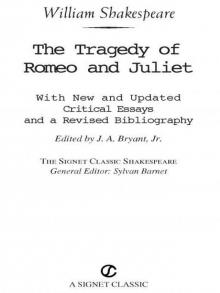 Romeo and Juliet
Romeo and Juliet As You Like It (Folger Shakespeare Library)
As You Like It (Folger Shakespeare Library)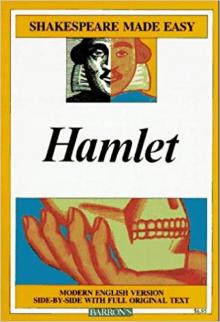 Hamlet
Hamlet Richard II (Folger Shakespeare Library)
Richard II (Folger Shakespeare Library) Macbeth
Macbeth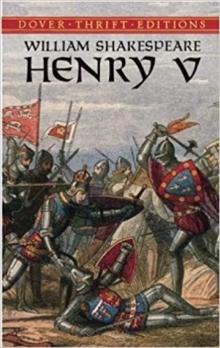 Henry V
Henry V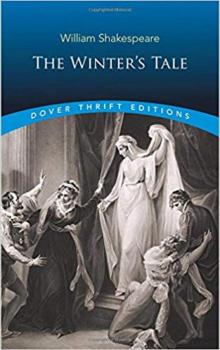 The Winter's Tale
The Winter's Tale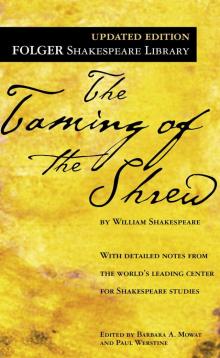 The Taming of the Shrew
The Taming of the Shrew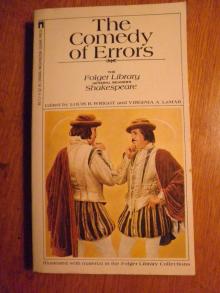 The Comedy of Errors
The Comedy of Errors King Lear (Folger Shakespeare Library)
King Lear (Folger Shakespeare Library)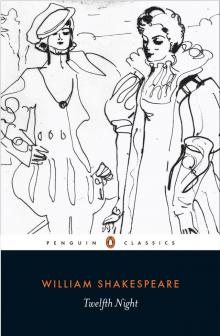 Twelfth Night
Twelfth Night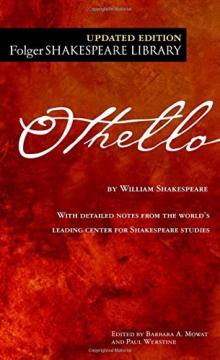 Othello
Othello The Two Gentlemen of Verona
The Two Gentlemen of Verona Henry IV, Part 1 (Folger Shakespeare Library)
Henry IV, Part 1 (Folger Shakespeare Library) King John/Henry VIII (Signet Classics)
King John/Henry VIII (Signet Classics)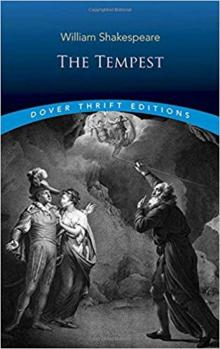 The Tempest
The Tempest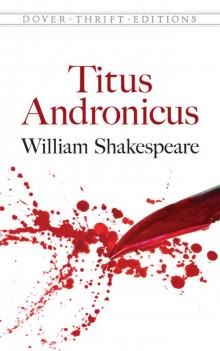 Titus Andronicus (Dover Publications)
Titus Andronicus (Dover Publications)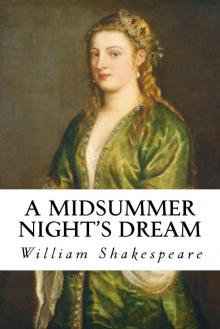 A Midsummer Night's Dream
A Midsummer Night's Dream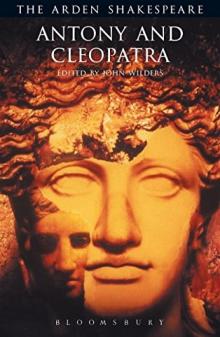 Antony and Cleopatra (Arden Shakespeare: Third Series)
Antony and Cleopatra (Arden Shakespeare: Third Series)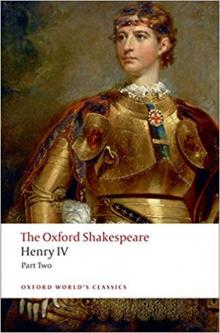 The Oxford Shakespeare: Henry IV, Part 2 (Oxford World's Classics)
The Oxford Shakespeare: Henry IV, Part 2 (Oxford World's Classics)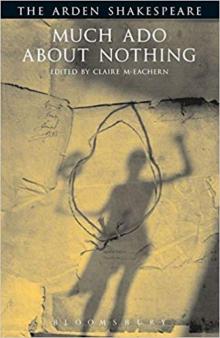 Much Ado About Nothing (Arden Shakespeare: Third Series)
Much Ado About Nothing (Arden Shakespeare: Third Series) All's Well That Ends Well
All's Well That Ends Well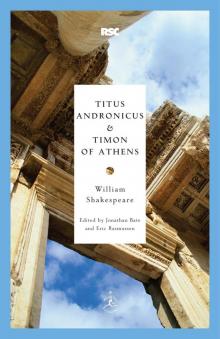 Titus Andronicus & Timon of Athens
Titus Andronicus & Timon of Athens Richard III (Modern Library Classics)
Richard III (Modern Library Classics) Coriolanus
Coriolanus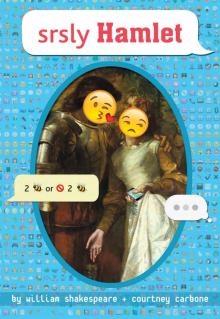 srsly Hamlet (OMG Shakespeare)
srsly Hamlet (OMG Shakespeare)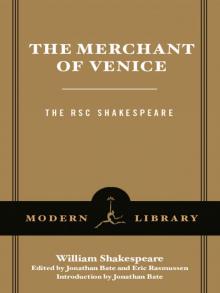 The Merchant of Venice
The Merchant of Venice Richard III
Richard III Richard II
Richard II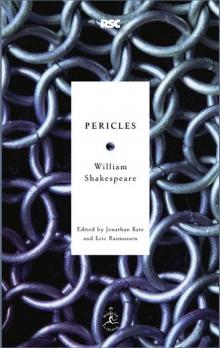 Pericles
Pericles As You Like It
As You Like It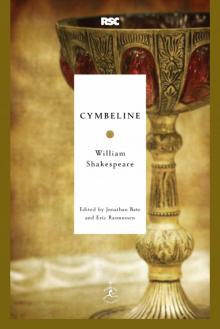 Cymbeline
Cymbeline Alls Wel that ends Well
Alls Wel that ends Well YOLO Juliet
YOLO Juliet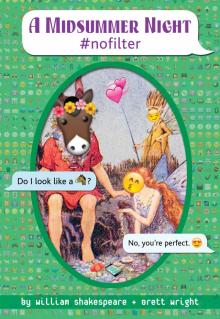 A Midsummer Night #nofilter
A Midsummer Night #nofilter Love's Labour's Lost
Love's Labour's Lost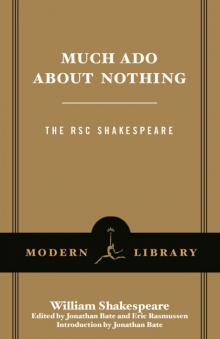 Much Ado About Nothing
Much Ado About Nothing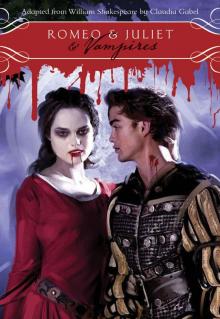 Romeo & Juliet & Vampires
Romeo & Juliet & Vampires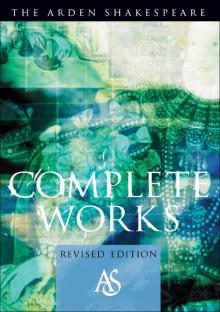 The Arden Shakespeare Complete Works
The Arden Shakespeare Complete Works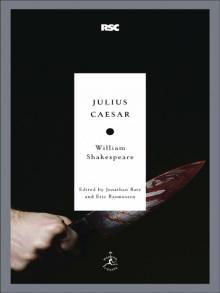 Julius Caesar
Julius Caesar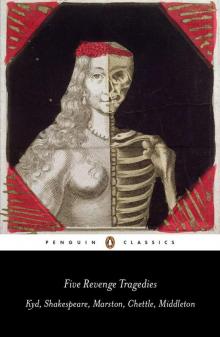 Five Revenge Tragedies: The Spanish Tragedy, Hamlet, Antonio's Revenge, The Tragedy of Hoffman, The Revenger's Tragedy (Penguin Classics)
Five Revenge Tragedies: The Spanish Tragedy, Hamlet, Antonio's Revenge, The Tragedy of Hoffman, The Revenger's Tragedy (Penguin Classics) Macbeth #killingit
Macbeth #killingit The Oxford Shakespeare: The Complete Works
The Oxford Shakespeare: The Complete Works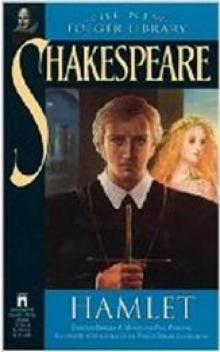 Hamlet, Prince of Denmark (Collins edition)
Hamlet, Prince of Denmark (Collins edition) King John & Henry VIII
King John & Henry VIII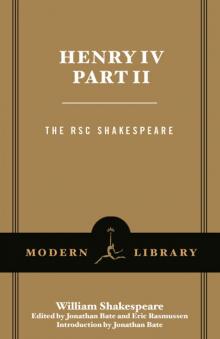 Henry IV, Part 2
Henry IV, Part 2 Complete Plays, The
Complete Plays, The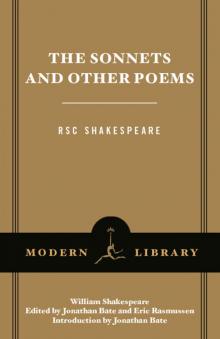 The Sonnets and Other Poems
The Sonnets and Other Poems Antony and Cleopatra
Antony and Cleopatra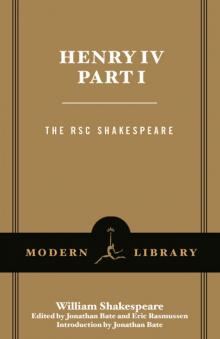 Henry IV, Part 1
Henry IV, Part 1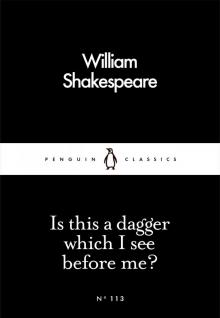 Is This a Dagger Which I See Before Me?
Is This a Dagger Which I See Before Me? The Complete Works of William Shakespeare In Plain and Simple English (Translated)
The Complete Works of William Shakespeare In Plain and Simple English (Translated) The Sonnets
The Sonnets